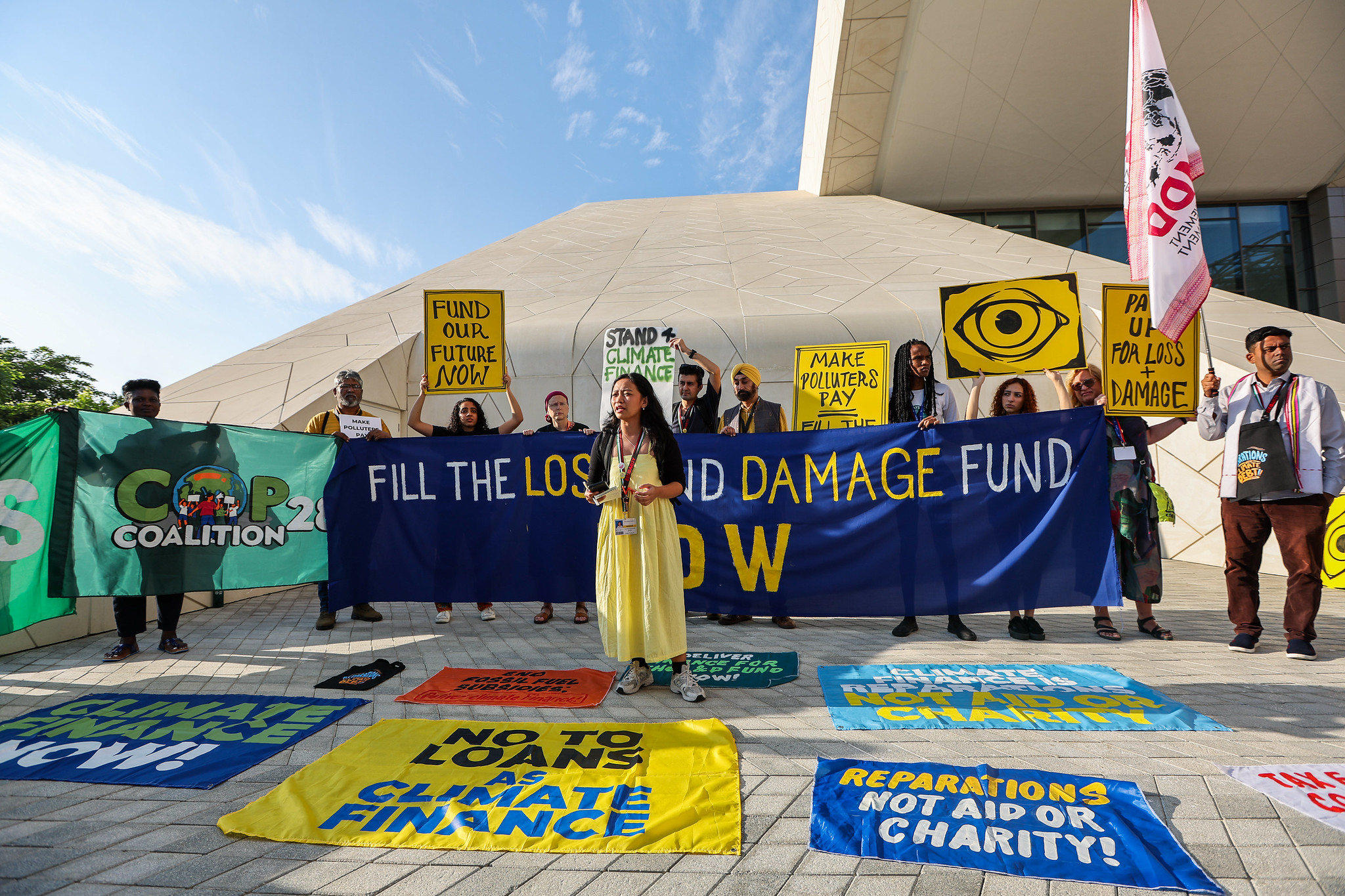Sticking to the science: A vision for COP28
Mirte Boot (MPP 2020) is co-organising the University of Oxford’s official side-event at COP28 on 6th December, “What does Net Zero Emissions need to mean to meet the goals of the Paris Agreement?”. Here, she reflects on two key goals for discussions this year and tells us how she thinks universities can lay the foundations for progress.

Confronting the climate crisis at COP is a marathon in compromise, collaboration and creativity. It requires us to come together with people we disagree with, to come up with solutions that could actually work.
As we step into COP28, the stakes have never been higher. The Paris Agreement was a global commitment to limit warming to 1.5°C. Yet now, nearly a decade later, we are moving in the opposite direction and heading for disaster. Greenhouse gas emissions are surging, temperatures are still going up, and our carbon budget is disappearing fast. The absence of accountability for the major contributors to climate change is glaring. Fossil fuel companies face no consequences for treating the atmosphere like a sewage dump.
So how can we galvanise progress at this critical time?
Firstly, we need to stick to the science of what is needed to actually stop climate change. This means rapidly cutting fossil fuel use through a wide-scale, rapid energy transition. It also means storing any remaining carbon that is produced, permanently, to reach net zero in time. For the COP28 negotiations, this entails pushing for a phase-out of fossil fuels altogether. If a compromise must be made, such as to phase out “unabated fossil fuels” – that is, phasing out any use of fossil fuels which are not captured and stored – countries must commit to officially defining what abatement means at some point in the near future. This definition should also stick to the science: abatement can only mean permanently restoring 100% of CO2 still produced at the time we reach net zero.
Secondly, we need to make sure oil companies cannot get away with vague promises. This means holding them accountable for their own emissions – not through voluntary action, but through government regulation. Oil and gas production cannot continue as it is right now, and fossil fuels need to be left in the ground. In the short term, governments need to commit to a policy that fossil fuel production can only happen if emissions can be verifiably, permanently (geologically) stored. This has the potential to break through the impasse at the heart of 28 years of negotiating rounds on climate mitigation.
How can universities lay the foundations for progress?
The MPP course at the Blavatnik School of Government was an incredible opportunity to broaden my perspective. Through diving into different policymaking topics during the MPP, I realised my one of my strong suits is being able to keep a big picture perspective, enabling me to tackle long term and often overlooked challenges. I decided to shift my energy to the next “frontiers” of the climate crisis – issues that are crucial but are neglected, and that may be difficult or unpopular. I chose to focus on specific missing pieces of the climate puzzle, including carbon removal policy, risk planning, and resilience.
This led to me co-founding the NGO Carbon Balance, coming out of Oxford Net Zero. Collaborating with scientists at the University of Oxford, we engage politicians and civil servants to harmonise government regulation and economic incentives with what the science says is needed to stop climate change. This means working to reduce emissions as fast as possible, but also ensuring that any carbon still extracted by companies or governments by the time we reach net zero is permanently stored - and that it is the oil and gas companies that foot the bill.
During my time at Oxford, I had deep, important conversations with my classmates from all over the world representing a kaleidoscope of professions – from civil servants to lawyers, journalists and speechwriters. In these conversations, listening to a diversity of perspectives and finding common solutions was key. The same, of course, is true for COP28. Let’s hope we can use all of our powers of listening and negotiation to push for much-needed progress.

